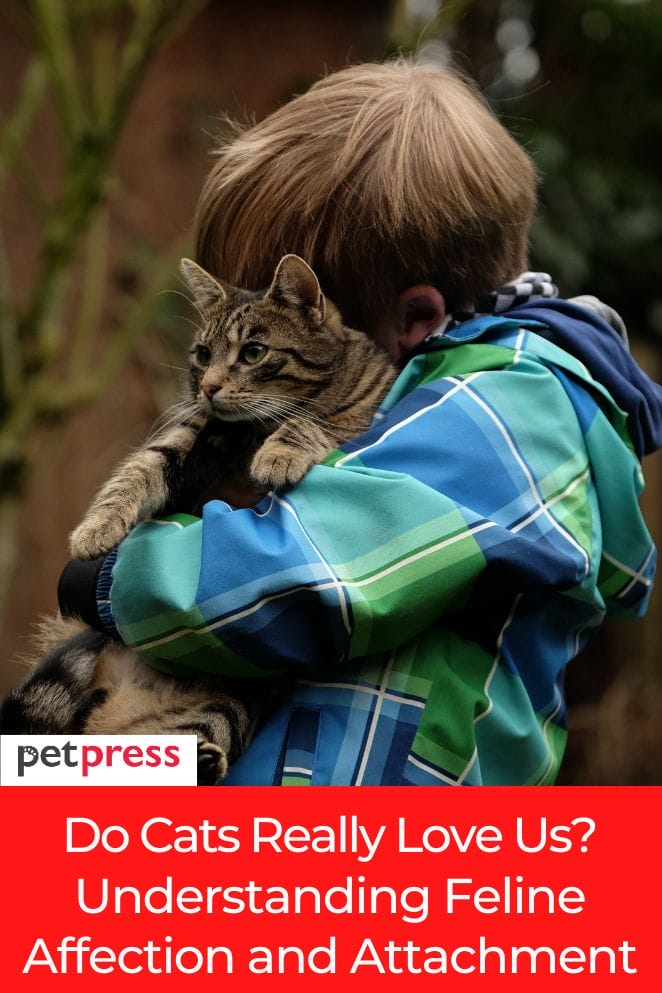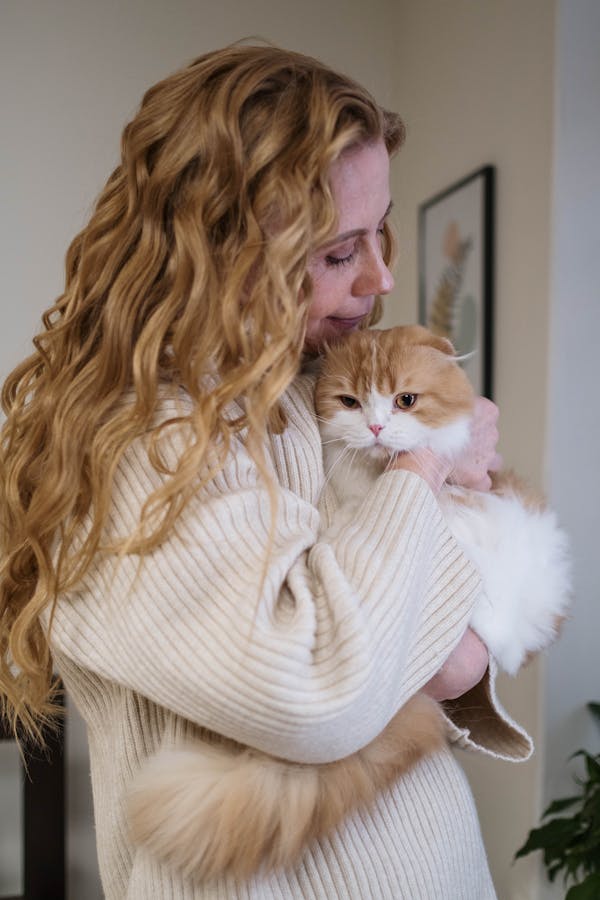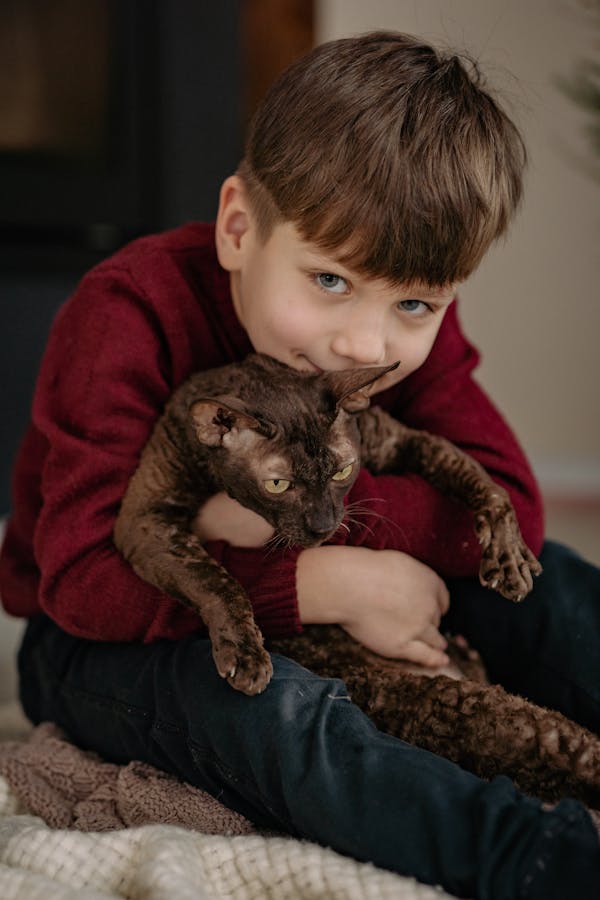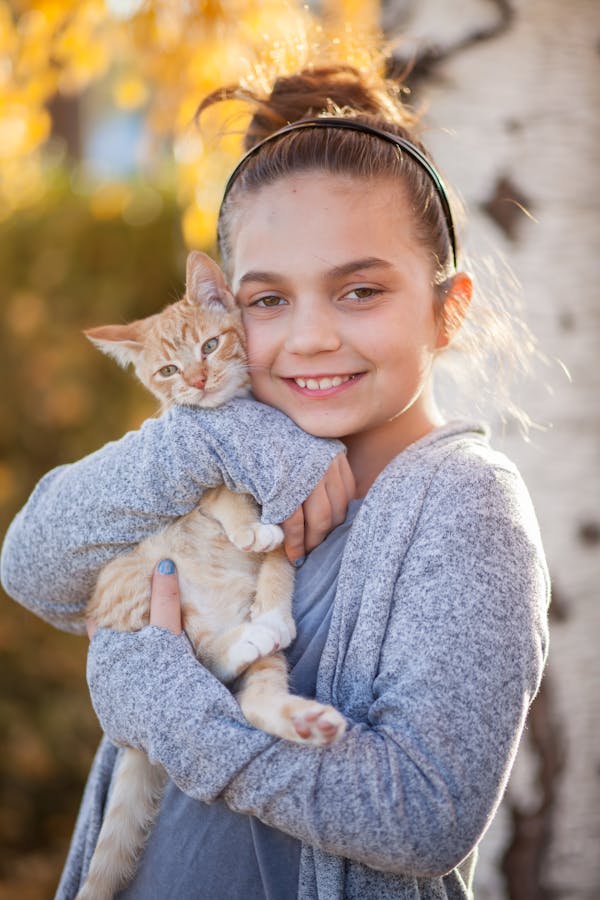
Cats are mysterious creatures.
With their aloof demeanor and independent nature, many people wonder: Do cats really love us?
If you’re a cat owner, you might have asked this question while your furry companion quietly watches you from across the room or unexpectedly plops onto your lap for a nap.
While cats don’t express love the way dogs do, they have their own unique ways of showing affection.
In this article, we’ll explore the signs of feline affection, the science behind their attachment, and how you can strengthen your bond with your cat.
Signs of Feline Affection
Cats have a reputation for being distant, but they do display love and affection through subtle (and sometimes not-so-subtle) behaviors.
Here are some telltale signs that your cat loves you:
Body language
Purring
Purring is one of the most familiar sounds cats make.
While they may purr when they’re in pain or feeling stressed, it’s often a sign of happiness and comfort.
If your cat purrs while sitting on your lap or when you’re petting them, it’s a good sign they’re content and enjoy your company.
Slow blinking
When your cat gives you a slow blink, they’re showing trust and affection—some even call it a “kitty kiss.”
It’s their way of saying they feel safe and relaxed around you.
If you blink back slowly, you might notice your cat doing it again as a sign of mutual trust.
Head butting
If your cat bumps their head against you, they’re “bunting.”
This behavior is their way of marking you with their scent, essentially claiming you as part of their safe and trusted space.
It’s a strong signal of affection and trust.
Grooming
Cats are very particular about grooming, and if your cat starts licking you, they’re treating you like a member of their family.
Grooming is their way of building social bonds, so if your cat decides to “clean” you, it’s their way of saying you’re important to them.
Behavioral cues
Following you around
If your cat quietly follows you from room to room, it’s a clear sign they enjoy being near you.
While cats may not show the same enthusiasm as dogs, their calm presence is their way of saying they value your company.
Sleeping near you
Cats are at their most vulnerable when they sleep, so if your cat chooses to nap next to you—or even on you—it’s a strong sign of trust.
It means they feel completely safe and secure in your presence.
Seeking attention
When your cat initiates interaction by hopping onto your lap, rubbing against your legs, or meowing, they’re expressing affection.
These behaviors show that they value your attention and enjoy spending time with you.
Exposing their belly
A cat lying on its back with its belly exposed is one of the ultimate signs of trust.
The belly is a sensitive area, so showing it to you means your cat feels safe, comfortable, and secure in your presence.

The Science Behind Feline Attachment
Research supports the idea that cats form strong emotional bonds with their humans.
A 2019 study published in Current Biology found that cats display attachment styles similar to those of infants and dogs.
In the study, 64% of cats demonstrated a secure attachment to their owners, meaning they felt comforted by their presence.
Additionally, cats have evolved alongside humans for thousands of years, and this long history of cohabitation has shaped their behaviors.
While cats are still independent hunters by nature, they’ve adapted to rely on humans for food, safety, and companionship, which fosters attachment.
Misconceptions About Cat Affection
Cats often get a bad rap for being indifferent or unaffectionate, but this couldn’t be further from the truth.
Here are some common misconceptions:
Cats are solitary creatures
While cats are more independent than dogs, they’re not loners. In the wild, many cats live in colonies and form strong social bonds.
Domestic cats, too, enjoy companionship and can build meaningful relationships with their humans and even other animals.
Cats only love us for food
It’s true that food helps build trust, but cats’ affection goes beyond mealtime.
They seek interaction, and companionship, and even groom their humans as a way of bonding.
These behaviors show that their connection with us is about more than just food.
Cats don’t miss us when we’re gone
Cats might not show separation anxiety like dogs, but they do miss their people.
When you return, your cat might give you extra attention, follow you around, or meow more than usual.
These are their subtle ways of saying they noticed your absence and are happy you’re back.

How to Strengthen Your Bond with Your Cat
Building a strong relationship with your cat requires time, patience, and understanding.
Here are some ways to deepen your connection:
Positive reinforcement
Cats respond well to positive reinforcement, so make sure to reward them when they show desired behaviors.
Whether it’s giving them treats, offering praise, or offering a gentle pet, these small gestures help your cat associate you with positive experiences.
This builds trust over time and encourages them to approach you more confidently.
Enjoy playtime together
Just like people, cats need mental and physical stimulation to stay happy and healthy.
Play is a wonderful way to engage with your cat and strengthen your bond.
Interactive toys like feather wands, laser pointers, or even simple cardboard boxes can mimic natural hunting behaviors and provide your cat with the exercise they need.
Playtime also helps you connect on a deeper level, as it allows both of you to enjoy time together.
Create a safe and comfortable environment
Cats thrive in environments where they feel safe and secure.
By providing cozy spots for your cat to rest, such as a soft bed or a hiding spot, you’re giving them the comfort they need to relax.
Scratching posts, perches, and a routine that they can rely on also contribute to a stress-free environment.
When your cat feels at ease in their home, they’ll be more likely to trust you and seek out your company.
Spend quality time together
Building a bond with your cat isn’t always about direct interaction—it’s also about simply spending time in the same space.
Some cats enjoy sitting near you, watching TV, or just hanging out in the same room.
Respect your cat’s preferences—some may love cuddling, while others might prefer more personal space.
Pay attention to their body language and let them come to you when they’re ready.
This shows your cat that you’re there for them without overwhelming them.

Final Thoughts
Cats might not show their feelings as openly as dogs, but they’re more loving and attached than they let on.
By understanding their unique behaviors and the ways they express affection, you can deepen your bond and truly appreciate the special connection you share with your feline companion.
FAQs
Yes, cats can form strong emotional bonds with their owners. They show love through behaviors like purring, head butting, and following you around.
Cats value their independence and may occasionally seek solitude. This doesn’t mean they don’t love you; they’re just recharging in their own way.
Signs of trust include slow blinking, exposing their belly, and choosing to sleep near you.
No, each cat has a unique personality. Some are more outwardly affectionate, while others express love in quieter, subtler ways.
Building trust with a cat can take weeks or months, especially if they’re shy or have a history of trauma. Patience and consistency are key.
- Does Cat Litter Melt Ice? The Complete Guide to Winter Safety - January 30, 2026
- Happy Tail Dogs: Understanding This Common Canine Condition - January 29, 2026
- How Cold Can Outdoor Cats Handle? Feline Winter Safety - January 27, 2026


GIPHY App Key not set. Please check settings